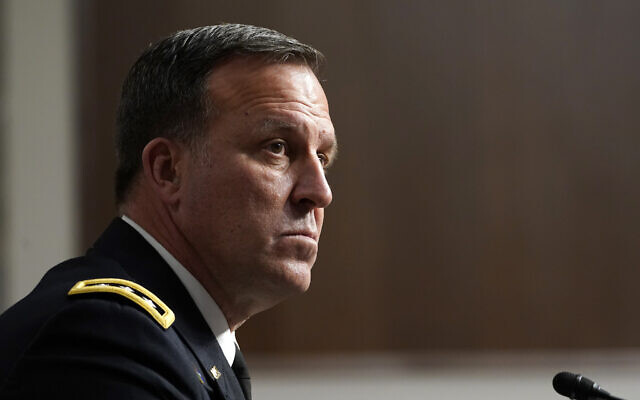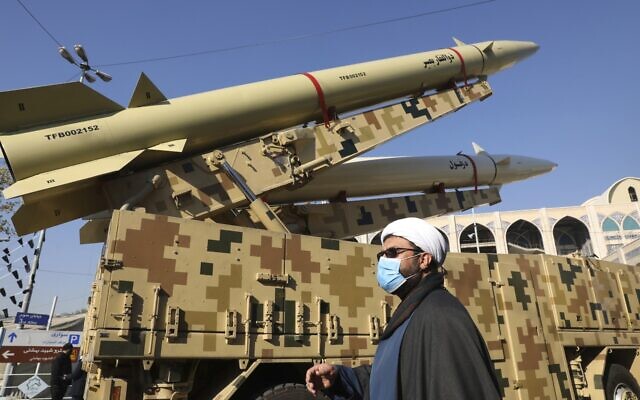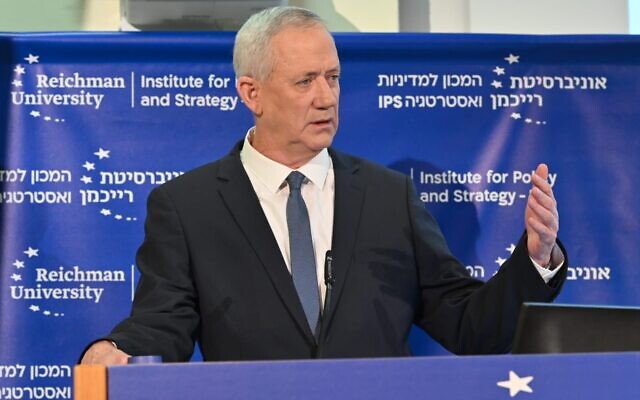Collaboration involving Israeli fighter jets and American refuelers seen as message to Iran regarding potential for US assistance in an actual Israeli attack

The United States will participate in Israel’s largescale drill simulating a strike on Iran’s nuclear facilities as part of the broader Chariots of Fire exercise later this month, Channel 13 reported on Tuesday evening.
According to the unsourced report, the US Air Force will serve as a complementary force, with refueling planes drilling with Israeli fighter jets as they simulate entering Iranian territory and carrying out repeated strikes.
The unprecedented Israel- US aerial collaboration in a drill simulating a strike on Iran’s nuclear facilities is seen as a potential message to Iran amid long-stalled negotiations in Vienna over a return to the 2015 nuclear deal, a possibility Israel has repeatedly voiced its objection to, warning it would lead to “a more violent, more volatile Middle East.”
Large numbers of Israeli fighter jets –dozens, according to Kan TV news — will take part in the simulated attack on Iran’s nuclear facilities. The TV report noted that when Israel conducted a major drill for such an attack some 10 years ago, when it was widely reported to be on the point of striking Iran, the US did not participate.
The Israeli military has taken steps throughout the past year to prepare a credible military threat against Tehran’s nuclear facilities. The US, in turn, has expressed reluctance to prepare for a military confrontation with Iran but nonetheless said it would explore other options if talks in Vienna fail.
Channel 13 defense reporter Or Heller noted that by including the US in the drill, the two countries are sending a message to Iran that the US could support an Israeli offensive, even if its fighter jets do not actively participate.

Israel’s Defense Minister Benny Gantz is slated to meet with his American counterpart, Lloyd Austin, on Thursday at the Pentagon in Washington. Meanwhile, Michael Kurilla, head of the United States Central Command (CENTCOM), who oversees US-Israel military cooperation, arrived in Israel on Tuesday for his first official visit.
At the beginning of last year, IDF Chief of Staff Aviv Kohavi announced he had instructed the military to begin drawing up fresh attack plans against Iran. By September, Kohavi said the army had “greatly accelerated” preparations for action against Tehran’s nuclear program.
In addition to having to find ways to strike Iranian facilities that are buried deep underground, requiring specialized munitions and tactics, the IAF will have to deal with increasingly sophisticated Iranian air defenses in order to conduct such a strike. The air force will also have to prepare for an expected retaliation against Israel by Iran and its allies throughout the region.
The upcoming drill is also expected to focus on preparing for and responding to such retaliation.

On Tuesday, Gantz warned that “the price for tackling the Iranian challenge on a global or regional level is higher than it was a year ago and lower than it will be in a year.”
Gantz said Iran was just a “few weeks” away from accumulating sufficient fissile material for a bomb and was also working to finish the production and installation of 1,000 advanced centrifuges for enriching uranium, including at a new underground site at the Natanz nuclear facility.

Also on Tuesday, Iran said it inaugurated a production line for manufacturing a new military drone, dubbed the Ababil-2, in Tajikistan.
The aerial drill comes amid a massive military exercise — dubbed “Chariots of Fire” — which involves nearly all units of the IDF, and has been focusing on training for fighting on Israel’s northern borders, including against the Iran-backed Hezbollah terror group in Lebanon.
As reported by The Times of Israel
